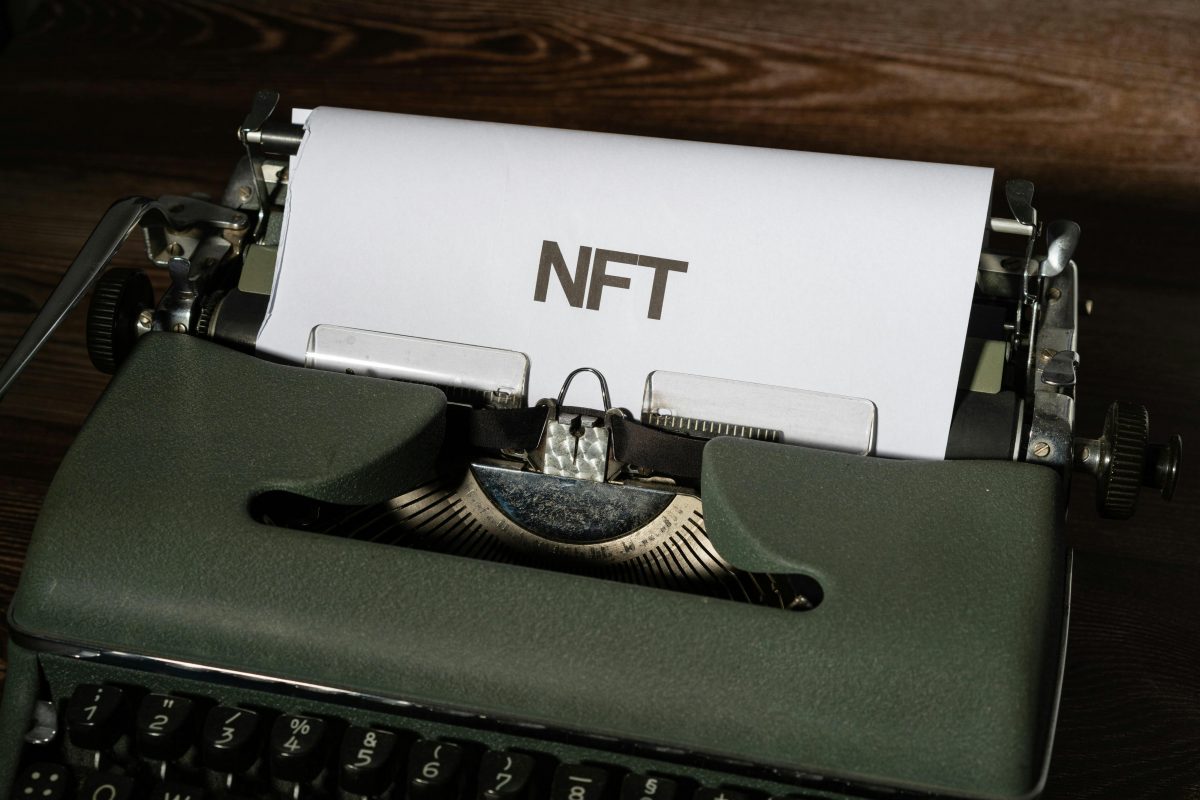Exploring the Next Frontier: Blockchain Technology’s Impact on the Mining Industry

Blockchain technology has emerged as one of the most revolutionary advancements in recent years, transforming various industries with its decentralized and transparent nature. In the mining industry, which has long grappled with challenges such as transparency, traceability, and sustainability, blockchain holds immense potential to bring about significant positive change.
The Mining Industry
The mining industry plays a crucial role in extracting valuable resources from the earth, supporting various sectors such as manufacturing, construction, and technology. However, the industry faces numerous challenges, including supply chain opacity, environmental concerns, and labor issues. These challenges not only impact the industry’s efficiency but also raise questions about ethical sourcing and sustainability.
Introduction to the potential of blockchain in mining
Blockchain technology has the potential to address many of the challenges faced by the mining industry. By leveraging blockchain’s decentralized nature, transparency, and smart contract capabilities, miners can significantly enhance their operations, improve traceability, ensure responsible sourcing, and streamline supply chain management.
Blockchain Revolutionizing Mining Operations
Enhancing transparency and visibility in supply chains
One of the key benefits of blockchain in mining is the ability to enhance transparency and visibility within complex supply chains. By recording every transaction and movement of materials on the blockchain, stakeholders can easily trace the origin, journey, and authenticity of raw materials, ensuring a higher level of transparency and accountability.
Improving traceability and provenance of raw materials
Blockchain technology can provide an immutable record of a mineral’s journey from extraction to processing and ultimately to end-products. This traceability enables companies and consumers to verify the authenticity and ethical sourcing of materials, helping in the fight against conflict minerals and ensuring responsible supply chain practices.
Streamlining and automating contract management
Smart contracts, which are self-executing agreements with predefined rules and conditions, can streamline and automate contract management in the mining industry. By eliminating the need for intermediaries and manual processing, smart contracts reduce the risk of errors, delays, and disputes, ensuring seamless execution and compliance with contractual obligations.
Revolutionizing asset tracking and maintenance
The use of blockchain in asset tracking and maintenance revolutionizes the way mining companies manage their equipment and infrastructure. By storing maintenance records, warranties, and ownership history on a blockchain, companies can easily track the lifecycle of every asset, improving maintenance efficiency and reducing downtime.
Reducing fraud, counterfeit products, and illicit activities
Blockchain technology’s immutable and transparent nature acts as a powerful deterrent against fraud, counterfeit products, and illicit activities in the mining industry. Each transaction recorded on the blockchain becomes a permanent record that cannot be altered, making it significantly more difficult for malicious actors to manipulate data or introduce counterfeit materials into the supply chain.
Sustainable Mining through Blockchain Technology
Ensuring responsible sourcing of minerals
One of the crucial aspects of sustainable mining is the responsible sourcing of minerals. Blockchain technology can provide a decentralized and auditable record of mineral origin, ensuring that suppliers adhere to ethical and responsible mining practices. This transparency can help eliminate the use of conflict minerals and promote sustainable sourcing.
Enhancing compliance with environmental regulations
Mining operations often face stringent environmental regulations aimed at minimizing their ecological impact. By leveraging blockchain, mining companies can track and record their environmental practices, including waste management, resource consumption, and emissions. This transparency enables regulatory authorities to monitor compliance more effectively and incentivizes companies to adopt sustainable practices.
Facilitating efficient waste management
Efficient waste management is a critical component of sustainable mining. Blockchain technology can streamline waste management processes by recording the disposal and treatment of mining waste on an immutable ledger. This enables stakeholders, including regulators and communities, to ensure that waste is handled responsibly and that any potential environmental impacts are minimized.
Promoting fair labor practices across the supply chain
Blockchain’s transparency and traceability can also play a significant role in promoting fair labor practices in the mining industry. By recording labor-related information, such as wages, working conditions, and certifications, on the blockchain, stakeholders can verify adherence to fair labor standards. This transparency helps combat exploitative labor practices and promotes social responsibility throughout the supply chain.
Blockchain-Based Marketplaces for the Mining Industry
Introduction to decentralized marketplaces
Decentralized marketplaces powered by blockchain technology are emerging as a game-changer in the mining industry. These marketplaces offer a peer-to-peer platform where mining industry participants can directly transact with each other, eliminating the need for traditional intermediaries and facilitating faster, more efficient transactions.
Enabling peer-to-peer transactions and direct trading
By leveraging blockchain’s smart contract capabilities, decentralized marketplaces enable peer-to-peer transactions and direct trading of mining assets. This removes the reliance on intermediaries, reduces transaction costs, and streamlines the buying and selling process, ultimately increasing liquidity in the market.
Reducing reliance on intermediaries and associated costs
Traditional mining asset transactions often involve multiple intermediaries, leading to complex processes and a significant financial burden. With blockchain-based marketplaces, these intermediaries can be bypassed, reducing associated costs while ensuring transparency and security through the immutable blockchain records.
Enhancing efficiency and liquidity in mining asset trading
Blockchain-based marketplaces improve the efficiency and liquidity of mining asset trading by providing a platform for seamless and secure transactions. By enabling direct peer-to-peer trading, buyers and sellers can interact in a trusted environment, increasing market participation and liquidity for mining assets.
Blockchain for Supply Chain Management in Mining
Tracing raw materials from extraction to end-products
The mining industry’s complex supply chains can be effectively managed and traced with the use of blockchain technology. By recording every step of a mineral’s journey on the blockchain, from extraction to processing and distribution, stakeholders can track the movement and transformation of raw materials, ensuring transparency and accountability.
Improving transparency and accountability in supply chains
Blockchain technology provides an immutable and transparent record of all transactions and activities within the supply chain. This transparency enables stakeholders, including regulators, consumers, and investors, to verify the authenticity, origin, and ethical practices associated with mined materials, contributing to a more accountable and sustainable supply chain.
Ensuring conflict-free and ethical sourcing
The issue of conflict minerals and unethical sourcing practices has long plagued the mining industry. Blockchain technology can play a vital role in ensuring conflict-free and ethical sourcing by providing a trustworthy and auditable record of mineral origins. Such transparency allows companies and consumers to make informed choices and support responsible sourcing practices.
Mitigating risks related to supply chain disruptions
Supply chain disruptions can have a severe impact on the mining industry, affecting production, delivery, and customer satisfaction. Blockchain’s decentralized and transparent nature allows for real-time monitoring of supply chain activities, enabling stakeholders to identify and address potential disruptions proactively. By mitigating these risks, blockchain enhances supply chain resilience and business continuity.
Blockchain and Smart Contracts in Mining
Introduction to smart contracts
Smart contracts are self-executing contracts with predefined rules and conditions encoded on a blockchain. When specific conditions are met, the smart contract automatically executes the agreed-upon actions. In the mining industry, smart contracts can streamline various processes and enhance operational efficiency.
Automating and ensuring compliance in contract execution
By utilizing smart contracts, mining companies can automate contract execution, reducing manual intervention and minimizing the risk of errors or disputes. These self-executing agreements ensure compliance with contractual terms, such as delivery schedules, quality standards, and payment conditions, while also reducing the need for reliance on intermediaries.
Enabling secure and trustless transactions
Smart contracts executed on a blockchain provide a secure and trustless environment for transactions in the mining industry. The predefined rules within smart contracts eliminate the need for intermediaries, ensuring that transactions occur only when all conditions are met. This significantly reduces the risk of fraud, manipulation, or non-payment.
Reducing payment delays, fraud, and disputes
The implementation of smart contracts in mining operations can address common issues such as payment delays, fraud, and disputes. By automating payment processes based on predefined conditions, smart contracts ensure that payments are made promptly and accurately, reducing the potential for delays, fraudulent activities, and contractual disputes.
Overcoming Challenges in Implementing Blockchain in Mining
Addressing scalability and performance issues
As blockchain adoption grows within the mining industry, it is crucial to address scalability and performance challenges. Traditional blockchain networks may face limitations in handling the vast amount of data generated by mining operations. However, emerging technologies, such as sharding and layer-two solutions, offer potential solutions to these challenges, increasing scalability and transaction throughput.
Ensuring data privacy and security considerations
The mining industry deals with sensitive data, including operational information, intellectual property, and personally identifiable information. Therefore, it is essential to implement robust data privacy and security measures when integrating blockchain technology. Encrypted data storage, permissioned blockchain networks, and secure access controls can help protect sensitive information from unauthorized access.
Navigating regulatory and legal complexities
Implementing blockchain technology in the mining industry requires navigating various regulatory and legal complexities. Different jurisdictions have unique regulations regarding data privacy, ownership of mineral rights, and compliance requirements. Collaboration with legal experts and proactive engagement with regulatory bodies can ensure compliance and smooth implementation of blockchain solutions.
Overcoming resistance to change and industry-wide adoption
Introducing blockchain technology into any industry comes with its fair share of resistance to change. In the mining industry, where traditional processes and established practices have long been ingrained, introducing blockchain may face initial skepticism. Demonstrating successful use cases, collaborating with industry players, and highlighting the benefits of blockchain adoption can help overcome resistance and drive industry-wide adoption.
Case Studies: Successful Blockchain Implementations in Mining
Tracking and verifying conflict-free diamonds with blockchain
The diamond industry has successfully implemented blockchain technology to track and verify conflict-free diamonds. By recording every step of the diamond’s journey, from mining to cutting and polishing, on a blockchain, stakeholders can guarantee the ethical sourcing and authenticity of each diamond, providing consumers with confidence in their purchase.
Revolutionizing mineral supply chain transparency
Blockchain technology has been utilized to revolutionize mineral supply chain transparency. By implementing blockchain, mining companies can provide immutable records of mineral provenance, ensure responsible sourcing, and enable consumers to verify the ethical practices associated with the materials they purchase.
Enhancing sustainable practices through blockchain in mining
Blockchain has been instrumental in enhancing sustainable practices in the mining industry. By enabling transparency and traceability in supply chains, blockchain empowers mining companies to implement responsible sourcing, promote fair labor practices, and contribute to environmental conservation, thereby enhancing sustainable mining practices.
Future Possibilities: Innovations and Trends in Blockchain for Mining
Incorporating IoT and AI with blockchain in mining
The integration of the Internet of Things (IoT) and Artificial Intelligence (AI) with blockchain technology represents an exciting future for the mining industry. By combining these technologies, mining operations can achieve real-time data collection, predictive maintenance, and autonomous decision-making, ultimately boosting operational efficiency and productivity.
Exploring tokenization for mining assets and investments
Tokenization, the process of representing real-world assets or investments as digital tokens on a blockchain, holds significant potential for the mining industry. By tokenizing mining assets, companies can enhance liquidity, fractionalize ownership, and facilitate broader participation in the sector, unlocking new investment opportunities.
Advancements in blockchain-based mining analytics and data management
Blockchain-based mining analytics and data management solutions are continually evolving, providing real-time insights for better decision-making. By leveraging blockchain’s transparent and immutable nature, mining companies can securely share and analyze data, facilitating more accurate predictions, efficient resource allocation, and improved operational efficiencies.
Conclusion
Blockchain technology has the potential to revolutionize the mining industry by addressing crucial challenges such as transparency, traceability, sustainability, and operational efficiency. By leveraging blockchain’s decentralized architecture, transparency, and smart contract capabilities, mining companies can enhance supply chain management, ensure responsible sourcing, streamline operations, and promote sustainable practices. As the mining industry embraces blockchain technology, it will witness increased transparency, efficiency, and accountability throughout its value chain, ultimately transforming the industry for the better.










hi
uyj